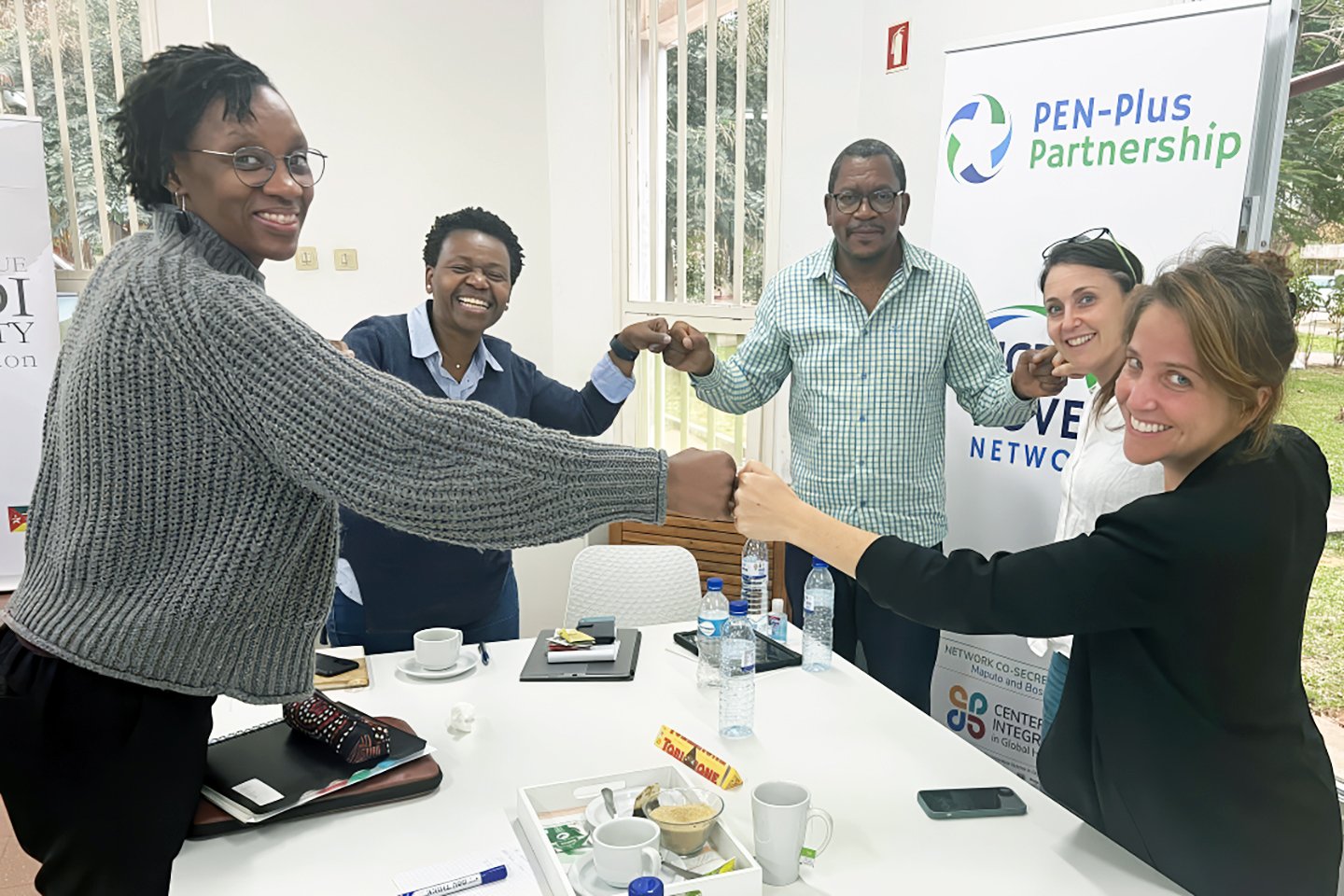Integration Science Study on the Delivery Status of High-Priority Clinical Services Launched
The launch of the time-driven activity-based costing sub-study involved members of both of the NCDI Poverty Network’s co-secretariats: From left, Dr. Beatriz Chongo, a PEN-Plus Partnership co-investigator at Universidade Eduardo Mondlane; Dr. Ana Mocumbi, co-chair of the Network, based at Universidade Eduardo Mondlane; Dr. Emilio Tostão, scientific director, Universidade Eduardo Mondlane; Dr. Alma Adler, director of research and monitoring and evaluation, Center for Integration Science in Global Health Equity at Brigham and Women’s Hospital; and Dr. Chantelle Boudreaux, associate director for integration science at the Center for Integration Science.
In August, the NCDI Poverty Network’s Maputo Co-Secretariat, based at Universidade Eduardo Mondlane, launched an integration science study designed to generate information on the delivery status of high-priority clinical services for people with noncommunicable diseases at 20 facilities in Mozambique, Cameroon, and Nigeria.
Joining the Maputo team in launching the study were two members of the Boston Co-Secretariat, Dr. Alma Adler, director of research and monitoring and evaluation, and Dr. Chantelle Boudreaux, associate director for integration science. Drs. Adler and Boudreaux are both based at the Center for Integration Science in Global Health Equity at Brigham and Women’s Hospital.
Funded by JDRF, the time-driven activity-based costing study seeks to identify opportunities for more effective care delivery strategies through integrated service packages. The study also aims to yield actionable recommendations for how countries might redesign their healthcare services to enable a more efficient and expansive set of high-priority interventions.

